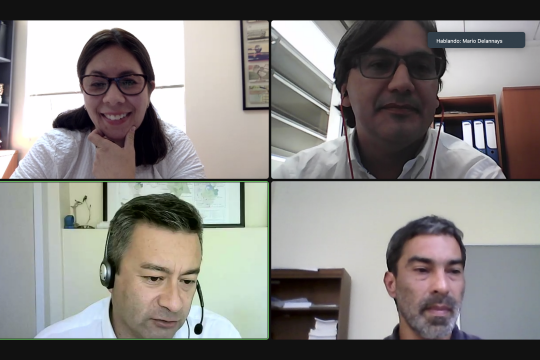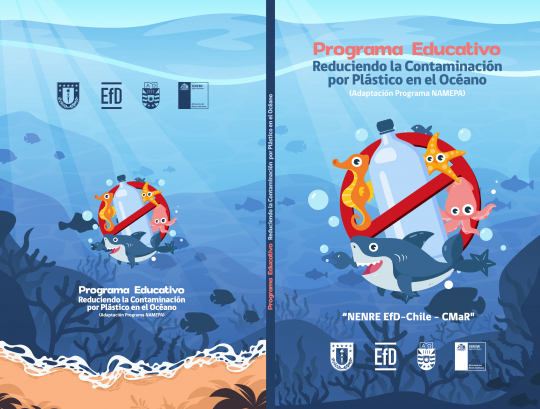The educational program "Reducing plastic pollution in the ocean" was presented in book format on March 7, in a virtual launch. This book will be available (in Spanish) for all teachers who want to educate their students and their families on plastic.
As a result of an educational program that taught school children, and their families, about plastic pollution in the ocean, a book was created that compiles these educational practices. This book is now available for free to all teachers who want to educate on this relevant topic. The project was funded by EfD through the collaborative program CMaR.
This book was launched on March 7th in a virtual event. Dr. Marcela Jaime, Director of EfD Chile and co-author of the publication, took the opportunity to tell the story about the process of the book and the project on which it was based. Dr. César Salazar, also a researcher on the project, acted as moderator.
It’s time to act!
Professor Paola Buchholz provided pedagogical advice to help the team create educational booklets with different activities to support teaching.
Dr. Nelson Vásquez, Professor at the Catholic University of the North and co-founder of the Waste Scientists Foundation; and Mario Delannays the Regional Secretary of the Ministry of Environment (SEREMI Medio Ambiente) of the Biobío Region, also attended the event.
"We are experiencing the consequences of choices we made in the past, of manufacturing and buying cheaper and more disposable products and that today are going to end up in the sea”, commented Mario Delannays.
“It is time to reverse it. We see that in the Biobío Region scientists are acting on the matter. Our region is a pioneer in certification of sustainable schools, and is positioned in the second place within the country in terms of certification of municipalities, so an educational program like this comes to reinforce our regional commitment to our environment,” he added.
Learnings from classroom and research
Dr. César Salazar is the editor of the book. He remarked that the multidisciplinary team had managed to complete the project successfully despite the pandemic. "This book collects the experiences not only from the classroom but also from the research linked to this program," he said.
When the researchers saw the excellent results in the classroom, they saw the possibility of extending the scope of this work to other boys and girls from other schools and localities.
Hard to change habits
Marcela Jaime commented on the beginnings of the project:
“The theory of behavior postulates that the formation of habits – positive or negative – begins at an early age and is very difficult to change in adult life. For this reason, one of our motivations was how to train agents of change”.
The fact that the book is free of charge is important. “We saw the inequality that exists in schools and that led us to devise a way to create a guide that would be freely available to all establishments that want to address plastic pollution in the ocean,” said Marcela Jaime.
Nelson Vásquez, noted “We are surrounded by plastic throughout our lives, and we must understand that the material is not to blame. It provides us with many services; the problem is our habits of its use. Hence the importance of generating educational material of this type”.
The book will be shared soon with all the interested audience and those who attended the book launching. If you want to access this material (in Spanish), please fill out this form and we will share it with your email once the digital version is available.

